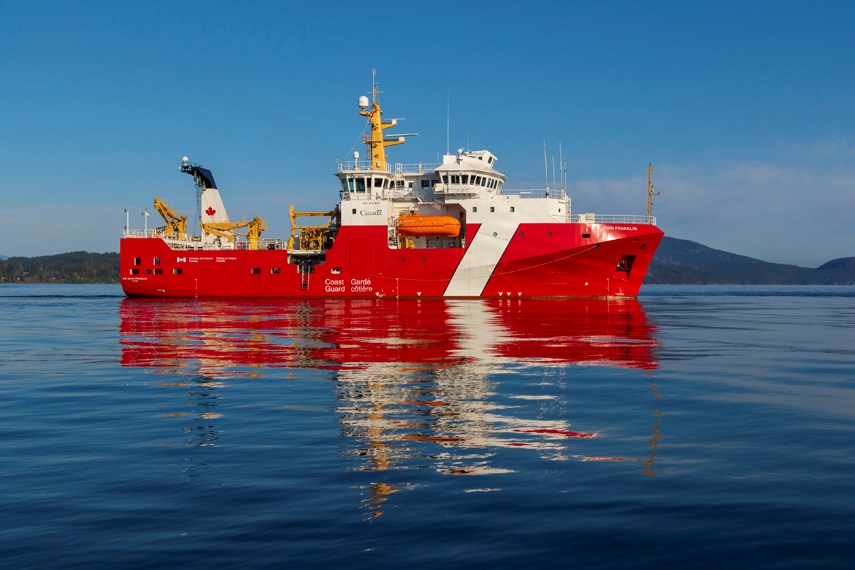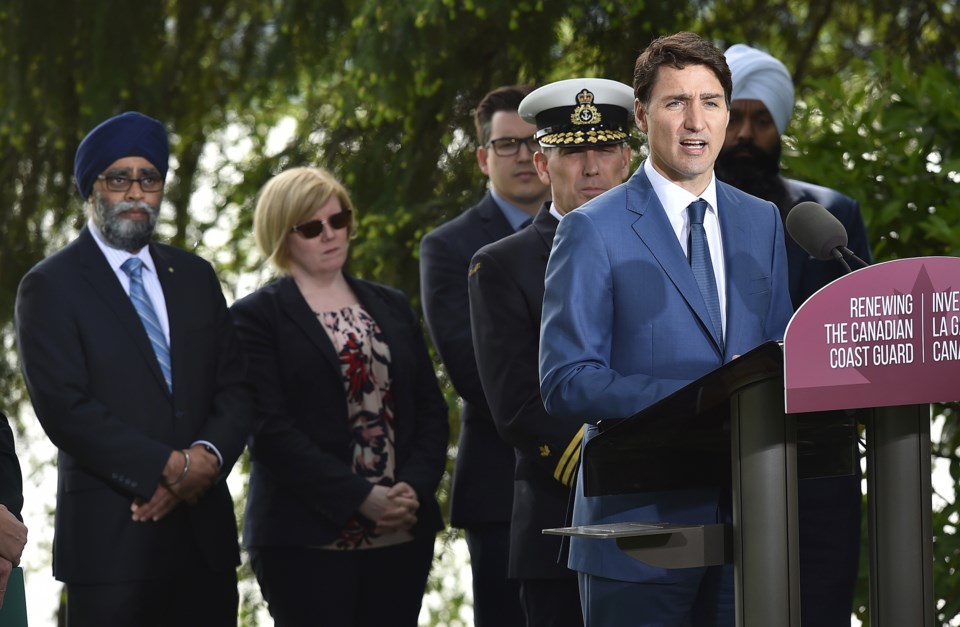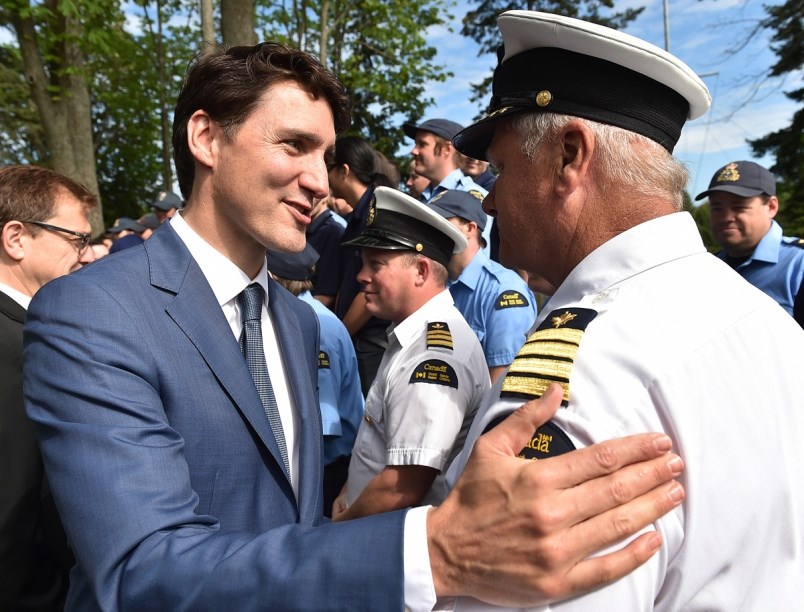Up to 16 new Coast Guard ships will be built at Seaspan's Vancouver Shipyards as part of the National Shipbuilding Strategy, Prime Minister Justin Trudeau announced Wednesday.
Trudeau announced the 16 new ships to be built in the North Vancouver shipyard, plus two additional ships to be built at Irving Shipyards in Halifax, as part of a $15.7-billion plan for “complete fleet renewal” for the Coast Guard.
The new ships are needed because some Coast Guard vessels are “almost as old as the Coast Guard itself,” said Trudeau at a press conference in Vancouver Wednesday.
“Canadians deserve better than having this fleet rust out, and dealing with this problem is long overdue,” said Trudeau.
The new “multi-purpose” vessels will support a variety of missions, including “light icebreaking, environmental response and offshore search and rescue,” according to the government.
Tim Page, vice-president of government relations for Seaspan, welcomed the announcement, adding Seaspan is keen to sit down with the Coast Guard and get more details about the ships, and sign a contract that will allow the shipyard to start on early design work.
So far, few details about the new multi-purpose ships have been made available, including the approximate size of the ships or where they might be slotted into Seaspan’s current production schedule.
Page said the multi-purpose ships essentially replace 10 different Coast Guard ships announced by the previous Conservative government in 2013.
Seaspan is currently in the process of putting finishing touches on the first federal fisheries vessel, the Sir John Franklin, expected to be officially delivered to the government by the end of June.

A second fisheries vessel under construction at Seaspan, the Jacques Cartier, is also expected to be launched early next month, said Page.
He added that ship “will be substantially more complete” when it launches than the Sir John Franklin was when it launched in December 2017. That ship spent the next 18 months being completed at Seaspan’s Victoria Shipyards, as well as having weld defects in the hull – discovered by a Coast Guard monitor – corrected.
“We’ve seen a 30 per cent learning curve between ship one and ship two,” said Page, adding that the second and third ships are being built more efficiently.
The three offshore fisheries vessels are being built under a fixed budget of $687 million.
Seaspan is also working on 18 “early blocks” for the first massive joint support ship which is next on the shipyard’s production schedule, after the three fisheries vessels.
While Seaspan welcomed the announcement about 10 new Coast Guard ships, Page said the shipyard was “surprised and disappointed”by the government’s announcement that it plans to open the national shipbuilding strategy up to a third shipyard –most likely Quebec’s Davie Shipyard.
Trudeau said Wednesday Ottawa is doing that because the two current shipyards – Seaspan and Irving – “don’t have the capacity to deliver the fleet renewal by themselves.”
Page said Seaspan will ask to speak to the federal government about that on an “urgent basis” as it could impact both the workforce and investments at the North Vancouver shipyard.
“We don’t know what work they’re thinking that third shipyard could perform,” said Page. Page said opening up the process to a third shipyard “effectively changes the playing field and rules of engagement” under which Seaspan and Irving were awarded agreements by Ottawa in 2011.

In recent years, Davie has won several contracts to build ships and lease back ships to Ottawa as stopgap measures, outside of the national shipbuilding strategy, and has lobbied the federal to be included in the program.
Under the umbrella agreement originally signed by Seaspan, the North Vancouver shipyard is also supposed to build a large polar icebreaker after the joint support ships.
There are roughly 1,200 people currently working at Seaspan’s North Vancouver shipyards, said Page.



